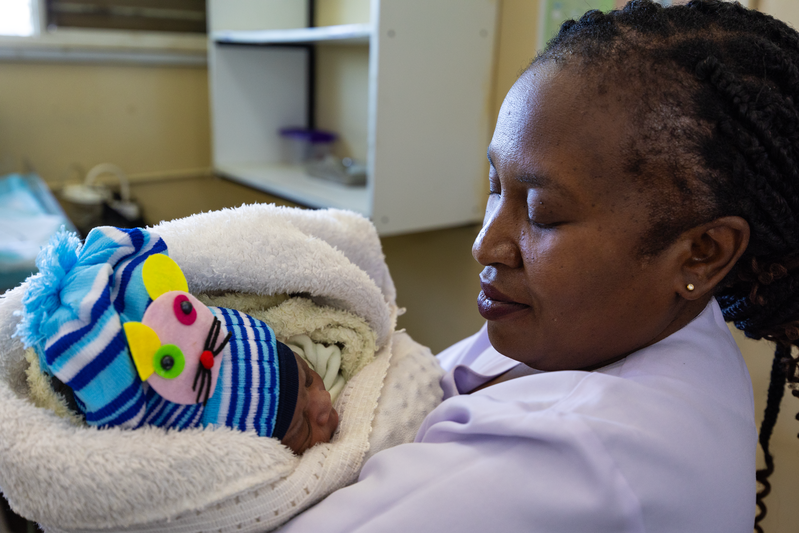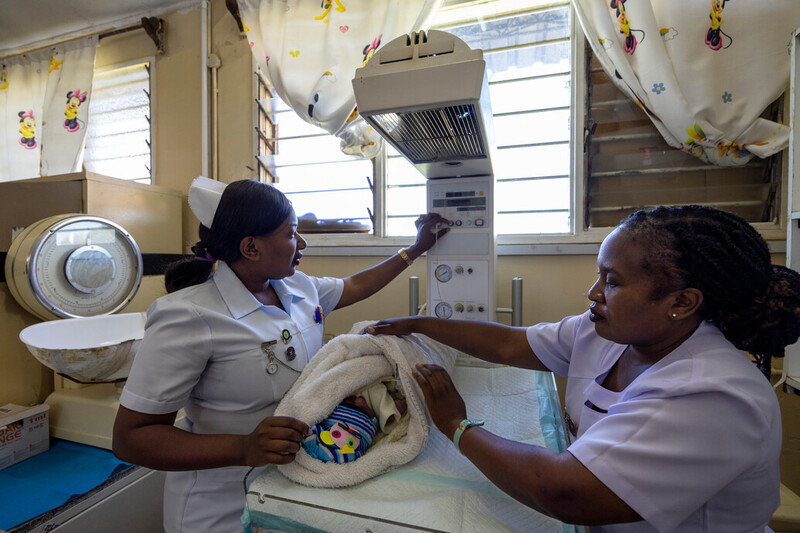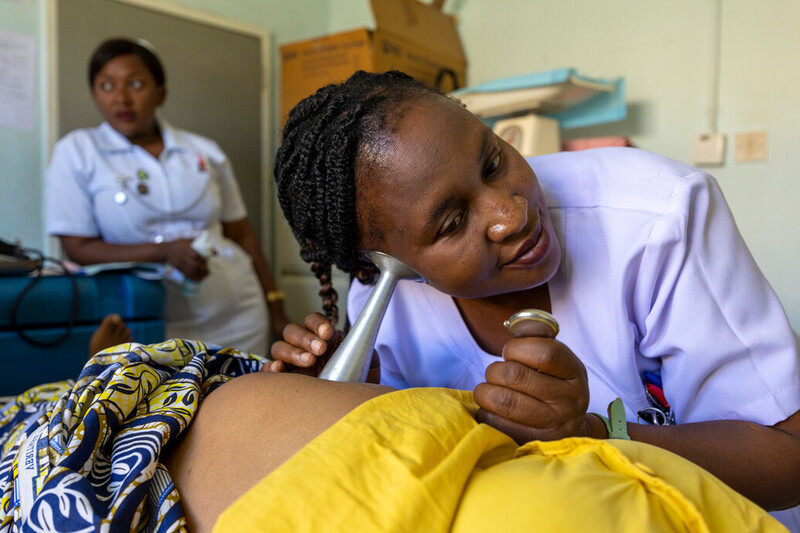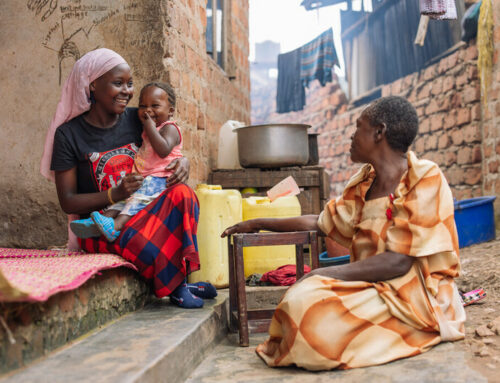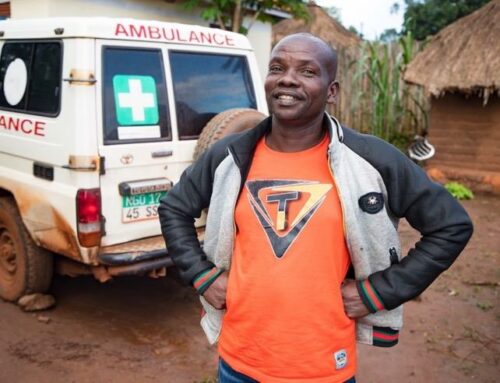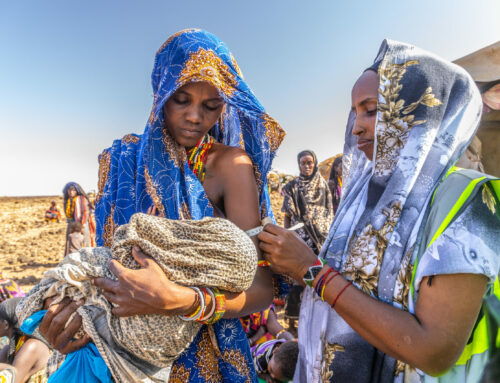Field Updates
A Midwife’s Journey in Zambia
Story by Wesley Koskei
There’s nothing more precious in the labor ward to a mom and midwife than the first cry of a baby. That first cry, an old village adage says, is perhaps the realization by the baby that they are further away from the creator. But the cry is also, undoubtedly, an announcement of the miracle of life.
Patricia Moonde has been a midwife and a nurse for over twenty years, and she never gets over the first piercing shriek of a newborn baby as she holds it in its fragility. Asa senior health care worker at New Masala Health Center in Ndola City in northern Zambia, she manages the maternity health unit serving a community of over 54,000 people. Despite resource shortages and a high patient load, she tirelessly juggles over 400 births a month, delivering an average of twelve babies a night.
For Patricia, it is more than work that she reports to, it isa calling to save lives and support women. As a young girl, she would dance in an oversize nurse uniform borrowed from her aunt, who worked at the big hospital in a nearby town.
Labor Ward Emergencies
At the labor ward, Patricia attends to a newborn with a tag on one tiny hand. High windows stare down at the emergency cupboard in the corner and a humming resuscitator at the end of the room. It is quiet with a lingering tension that something remarkably powerful happened in the room.
Just hours earlier, the labor ward was in emergency mode when Patricia discovered that the baby had respiratory issues and could not breathe properly after delivery. The situation led to a chain of actions—what Patricia calls “the magic of midwives”—as they worked together to help the baby to breathe normally. As the mother holds the now-stable baby, Patricia feels relief as the happy mom gets to go home with her baby girl.
“When the mom is expecting, it’s as if the midwife is expecting too” Patricia reflects. When there are delays in childbirth, Patricia often feels anxious and paces in and out of the ward. “When the delivery takes longer than expected, it is an extremely stressful moment for both the mother and me as a midwife.”
Shortage of midwives
Due to a persistent shortage of healthcare workers at the clinic, Patricia and other midwives at the New Masala Clinic find themselves stretched thin as they try to attend to numerous mothers in need, especially in situations where multiple expectant mothers are on the brink of delivery at the labor ward. On many occasions, Patricia has juggled between several mothers on the verge of delivery at the labor ward.
“There are moments when you find yourself alone in the maternity wing, and there are ten mothers on the verge of delivery,” notes Patricia.
Such scenarios are typical of the critical conditions faced by midwives in clinics where resources are stretched to their limits.
Patricia and other midwives caring for newborn at the New Masala Health Center. Amref Health Africa/David Brazier
Closing the Gap: Training more healthcare workers
Amref’s ‘Closing the Gap’ project equips healthcare workers like Patricia to promptly address pregnancy complications and emergencies, enhancing their ability to detect issues like high blood pressure early on. This targeted training enables them to manage emergencies locally, reducing the need for referrals to major hospitals.
Midwives, like Patricia, play a crucial role in supporting mothers throughout the entire reproductive process, from preconception to postnatal care. Expanding training initiatives for healthcare workers, such as Patricia, contributes to better newborn survival and overall maternal and child health. Midwives go beyond attending births, providing comprehensive care that includes antenatal and postnatal support, family planning, detection and treatment of sexually transmitted infections, and sexual and reproductive health services for adolescents. This multifaceted approach ensures respectful care while upholding women’s rights.
Patricia emphasizes the need to have more midwives trained to handle these unforeseen risks or emergencies. And equally important is having specialized health care workers to look after the population.
Thanks to donors like you, Amref has been able to continue to train midwives, preventing many maternal and newborn deaths, and improving other health services to those that need it the most.
